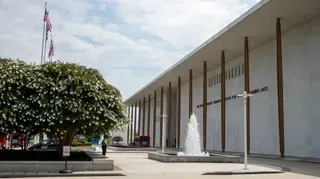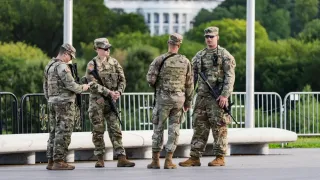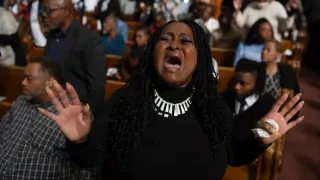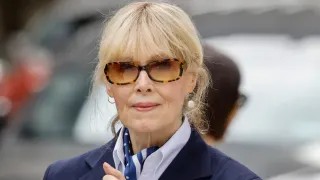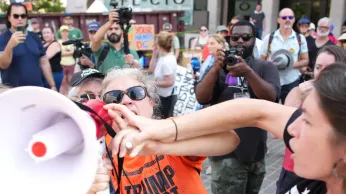
Sep 8
D.C. Queer Venues Reported Steep Losses Amid Federal Police Takeover
READ TIME: 2 MIN.
Washington, D.C.’s vibrant LGBTQ nightlife scene faced an abrupt and significant disruption during the first weekend of August 2025, as an unexpected federal police operation set up checkpoints and increased patrols throughout the city’s central entertainment corridors. This action, which coincided with a heightened security alert, left queer venue owners reporting dramatic drops in revenue and foot traffic—raising concerns about both the immediate economic fallout and the longer-term effects on community safety and visibility .
Bar and venue operators in the U Street corridor, a traditional stronghold of D.C.’s queer social life, were among the hardest hit. Zach Renovátes, managing partner of the District Eagle, Bunker, and Lucky Pollo, described that weekend as “miserable,” noting a steep, sudden downturn: “Friday, specifically, we saw a tremendous decline, to the tune of 40%, maybe even 50% in foot traffic,” Renovátes told Metro Weekly. “And people are scared, right? They see what’s happening in the media, in the news. They see these police checkpoints going up, literally beside or adjacent to our venues. And they see increased police presence all along the corridor. That’s frightening” .
He further explained that the number of patrons entering their establishments had plummeted, along with revenue, with “thousands of dollars” in losses resulting over just one weekend. For LGBTQ-owned and focused businesses—many still recovering from pandemic-era financial strain—such abrupt declines pose existential risks to their operations .
While federal and local authorities have not publicly detailed the specific reasons for the operation, the presence of checkpoints and a visible police force near queer venues has raised questions about public safety and the right of marginalized communities to gather without intimidation. Patrons reportedly expressed discomfort and anxiety, with some opting to stay away from nightlife districts altogether.
Despite the heavy police presence, Renovátes affirmed that his venues maintain strict control over who is allowed entry and under what circumstances, stating, “We will, under no circumstances, allow any police or federal entities into our establishment without a valid warrant that’s been issued ” .
The situation recalls historic tension between law enforcement and queer communities, rooted in historical patterns of police harassment and surveillance of queer spaces, a painful legacy that spans the Stonewall riots of 1969 to the ongoing debates about policing at Pride events. Moreover, the immediate financial impact on D.C.’s queer businesses comes at a precarious time for queer nightlife. Many bars, clubs, and venues are still rebuilding after years of pandemic-related closures and reduced tourism. The sudden loss of revenue due to police activity not only threatens the sustainability of individual businesses but also puts at risk the social infrastructure that supports queer communities in the city.
Renovátes emphasized the importance of community solidarity in response to these challenges: “The attention on establishments affected by the heightened police presence highlights the need to support local LGBTQ businesses—and he expressed hope that patrons would return by ‘showing up and showing out’” .
